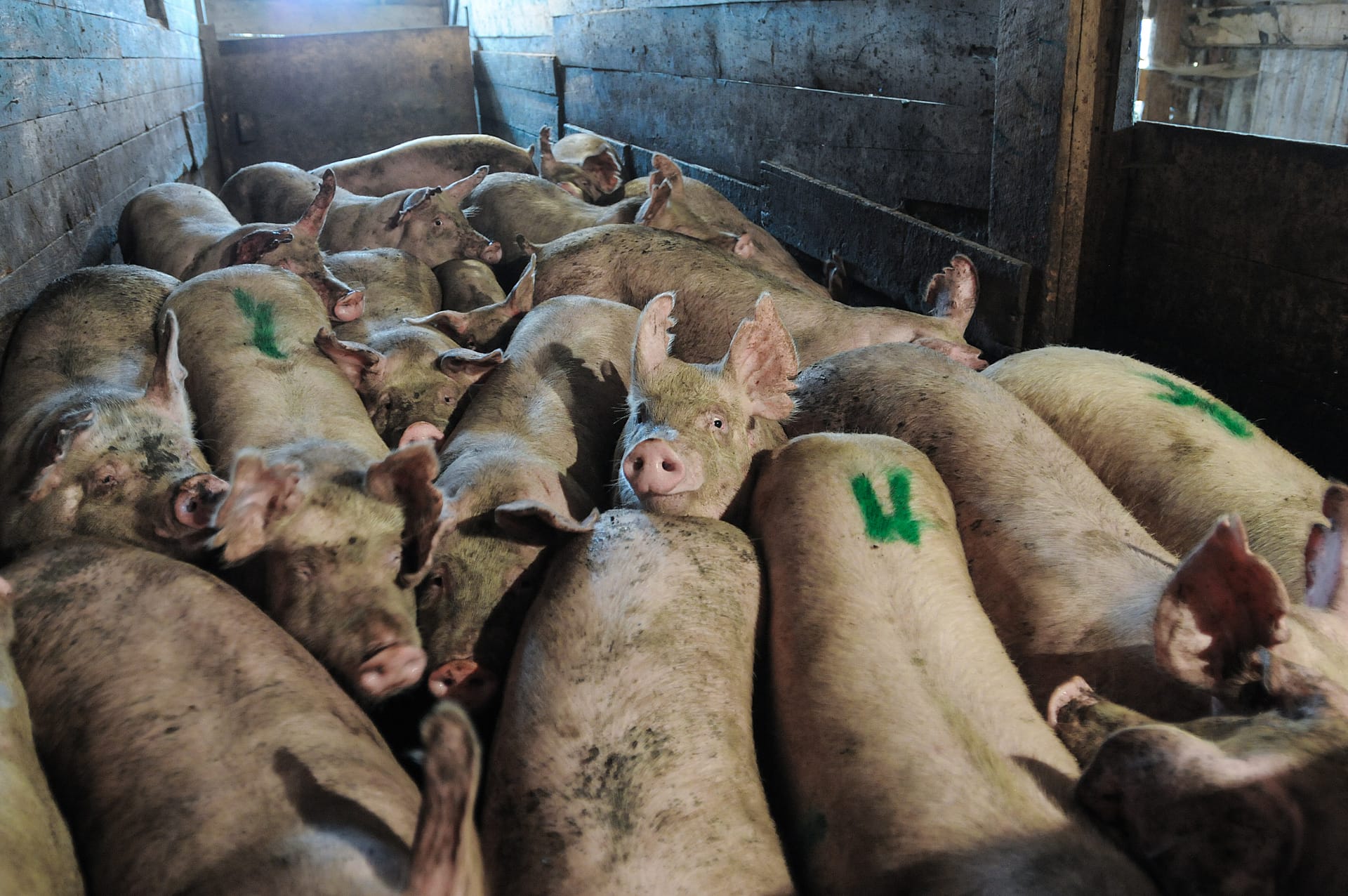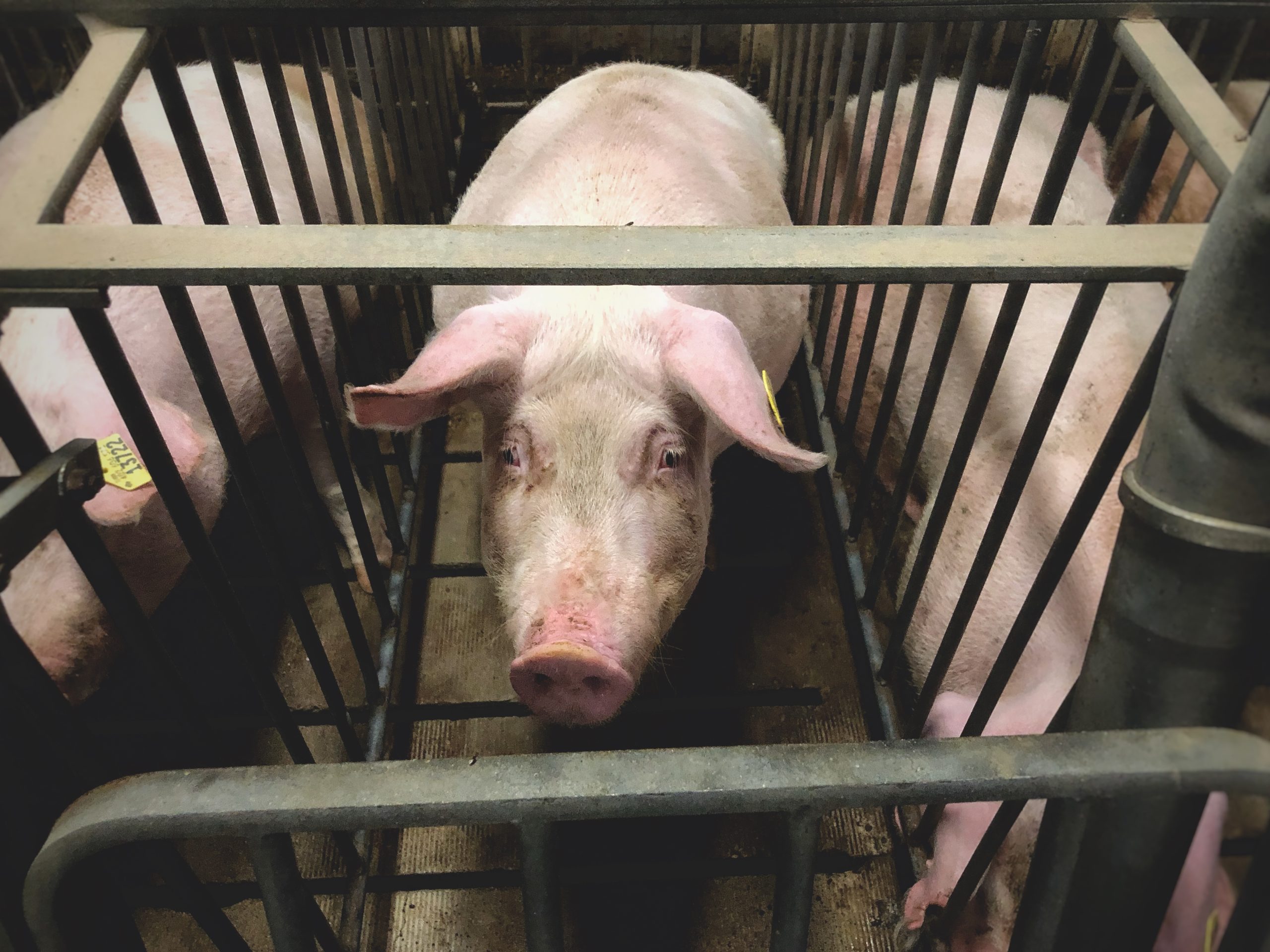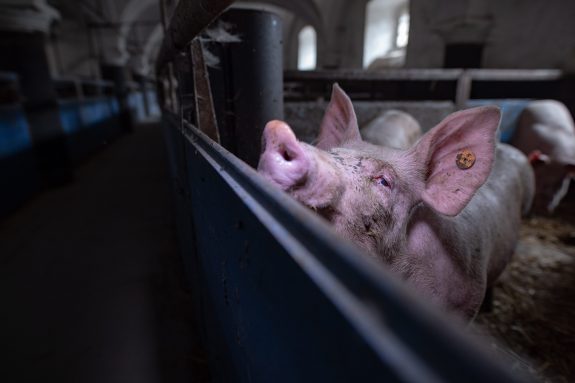A major slaughterhouse in Quebec is closing its doors for good.
The facility is south of Quebec City in Vallée-Jonction, and is owned by Olymel, Canada’s largest pig meat (pork) producer. According to the company website, Olymel is a multi-billion dollar company with the capacity to kill up to 185,000 pigs in a week, as well as 2.4 million chickens and turkeys. Olymel owns three additional slaughterhouses in Quebec and is expected to close its Vallée-Jonction location in December.
Olymel president and CEO Yanick Gervais told the media that the closure is due to inflation, the poor state of the slaughterhouse’s infrastructure, the pandemic, the closure of the Chinese market, and a labour shortage in the region.
Over the past two years, 200 workers have stopped working at the slaughterhouse. This isn’t surprising. Slaughterhouses are some of the most dangerous places for people to work, where workers can become injured from handling knives, slipping and falling on blood-soaked floors, and performing repetitive motions.
The work of repeatedly killing and dismembering animals can also take an emotional toll on workers. Slaughterhouse workers are especially prone to depression, anxiety, and even PTSD.
The Olymel slaughterhouse closure will affect nearly 1,000 workers, and the company and province should help them transition to safer and better jobs.

Photo: Jo-Anne McArthur | We Animals Media
Farmed Animals Suffer in Canada’s Meat Industry
For the vast majority of animals who are raised and killed for food in Canada, their lives are filled with suffering from birth until slaughter. Nearly all of these animals were raised in cruel factory farms, where animals are crammed together with no access to the outdoors.
Pigs in particular are subject to many “standard” practices that cause unimaginable suffering, including keeping pregnant pigs in gestation crates so small they cannot even turn around, castrating and slicing off piglets’ tails without anaesthetic, and killing piglets by “thumping”— blunt force trauma caused by slamming their heads into the floor.
To make matters worse, there are no federal animal welfare laws to protect animals from cruelty in Canadian farms, and standard industry practices tend to be exempt from provincial cruelty laws.
En route to the slaughterhouse, animals endure abysmal transport conditions, where they are denied food, water, and rest for long hours and are exposed to all types of weather—from freezing winter temperatures, to sweltering summer heat.

Slaughterhouses Are Inherently Cruel
In February 2023, Animal Justice released shocking footage from a slaughterhouse in British Columbia, showing cows, sheep, goats and llamas enduring illegal abuse and heartbreaking suffering. The video showed workers beating animals, animals being improperly stunned before being cut into, and terrified animals desperately trying to escape.
Slaughterhouses operate in secrecy, and hide the grim reality of how animals suffer in the meat industry. Please join us in calling for mandatory cameras in slaughterhouses that can be livestreamed online, so Canadians can see with their own eyes how animals end up on their plates.
Banner: Konrad Lozinski




